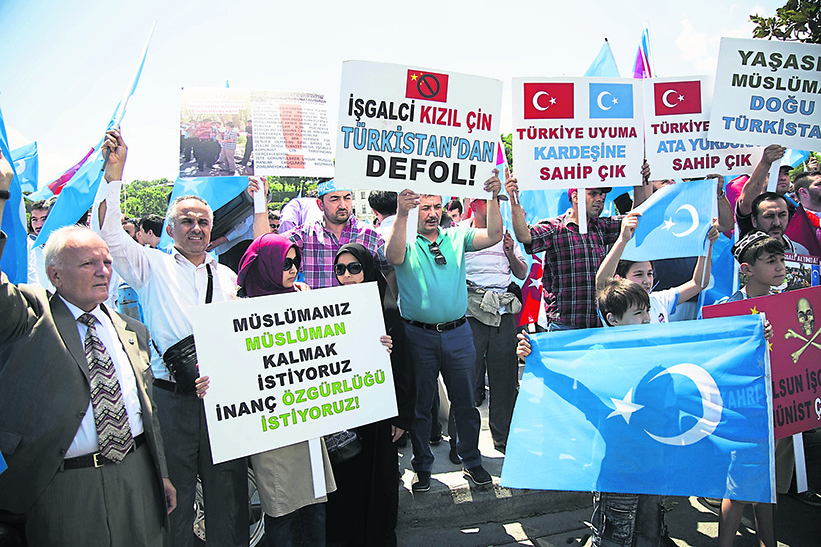
Turkish people march to Chinese Embassy in Istanbul to voice their anger at China’s decision to ban fasting in Xinjiang (Photo: Ahmet Bolat / Anadolu Agency)
Meng Yihua
The Chinese Government again issued notices in Xinjiang as Ramadan approached, demanding people not to observe the fasts. This is in line with Government attitudes towards Ramadan in previous years, when Communist Party members, civil servants, and teachers were ordered not to fast.
In 2013, schoolchildren and many workers were offered free meals, with workers forced to eat or face dismissal. In 2008, local government forced Muslim restaurant owners to remain open during daylight hours, when they would have traditionally shut. This year, restaurants have been encouraged to remain open by promising them fewer visits from food safety inspectors if they did so.
Violence in the region has increased in recent years, with the Government’s lip service to freedom of religion in stark contrast to the repressive policies it propagates. Xinjiang, a large province in western China, was populated predominantly by Uyghurs – native Muslims, similar to Central Asia in culture and language.
At the start of the 1950s, Uyghurs constituted approximately 90% of Xinjiang’s population, but the Government has been resettling Han Chinese into the area to maintain control of this resource-abundant region, and dilute the strong Uyghur population. Today, only about 40% of Xinjiang’s population is Uyghur.
The influx of Han settlers has created economic, social and political tensions; this demographic shift coupled with other harmful Government policies has sparked violent behaviour from many Uyghurs, which central Government is quick to dub “Islamic militant violence.”
World Uyghur Congress Spokesman, Dilxat Raxit, said that “the increase in controls could cause sharp resistance…and only serve to deepen the division”. In the Government’s attempt to clamp down on religious expression, Raxit would appear to be correct. Ramadan is a sensitive time, and only four days into the month, a traffic checkpoint in Kashgar was attacked by Uyghurs, where at least 15 people are thought to have been killed after armed police officers rushed to the scene.
In 2014, at least 60 people were killed in a series of attacks, with China justifying it as the fight against “religious extremism and terrorism”. Officials in Xinjiang and young people under 18 are banned from participating in religious activities, such as going to the mosque. China’s Communist Party may claim to uphold freedom of religion, but there are strict controls in place to allow only officially recognised religious institutions to operate.